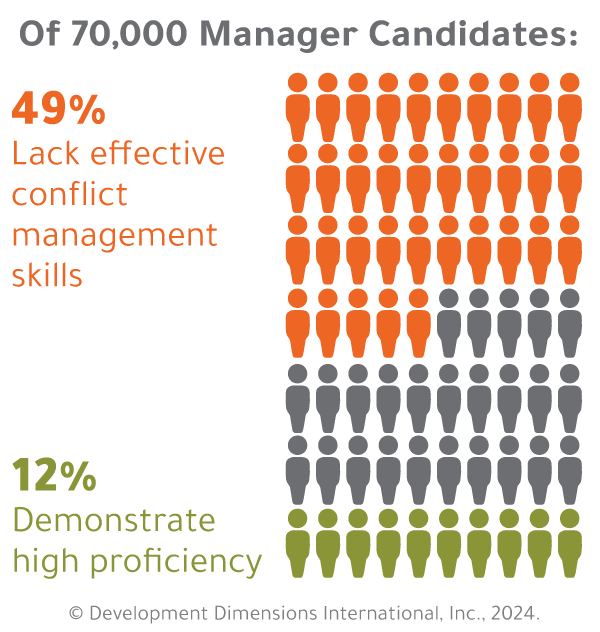
'With rising political tensions and growing employee distrust of leaders, workplaces are becoming more polarised'

Nearly half of manager candidates across the world have failed to demonstrate effective conflict management skills, which are crucial as workplaces become more "polarised," according to a new report.
Global leadership firm DDI recently assessed more than 70,000 manager candidates globally to discover that 49% of them struggle with managing conflict in the workplace.
Leaders appear to be aware of this weakness, according to the report, as only 30% expressed confidence in their ability to manage conflict.
Read next: Conflict in the workplace: key causes and solutions for HR leaders

The report found that the skills that manager candidates particularly struggle with include:
The findings come in the wake of growing tensions, particularly fuelled by political and other socio-political topics, in the workplace.
Recent research has found that political conversations can result in not only lower productivity in the workplace, but also toxic work environments.
"With rising political tensions and growing employee distrust of leaders, workplaces are becoming more polarised," said Stephanie Neal, Director of DDI's Centre for Analytics and Behavioural Research, in a statement.
"Conflict can have a ripple effect throughout organisations, stifling productivity, creativity, and morale – and ultimately driving higher turnover. Now, is the time for leaders to address the conflict management gap."
Despite this, conflict also presents an "opportunity for a healthy debate" that can lead to a positive change in the workplace, according to Tacy Byham, Ph.D., CEO of DDI.
"By helping the next generation of leaders cultivate the skills to handle conflict effectively, organisations can foster innovation and growth with more focused and aligned teams," Byham said.